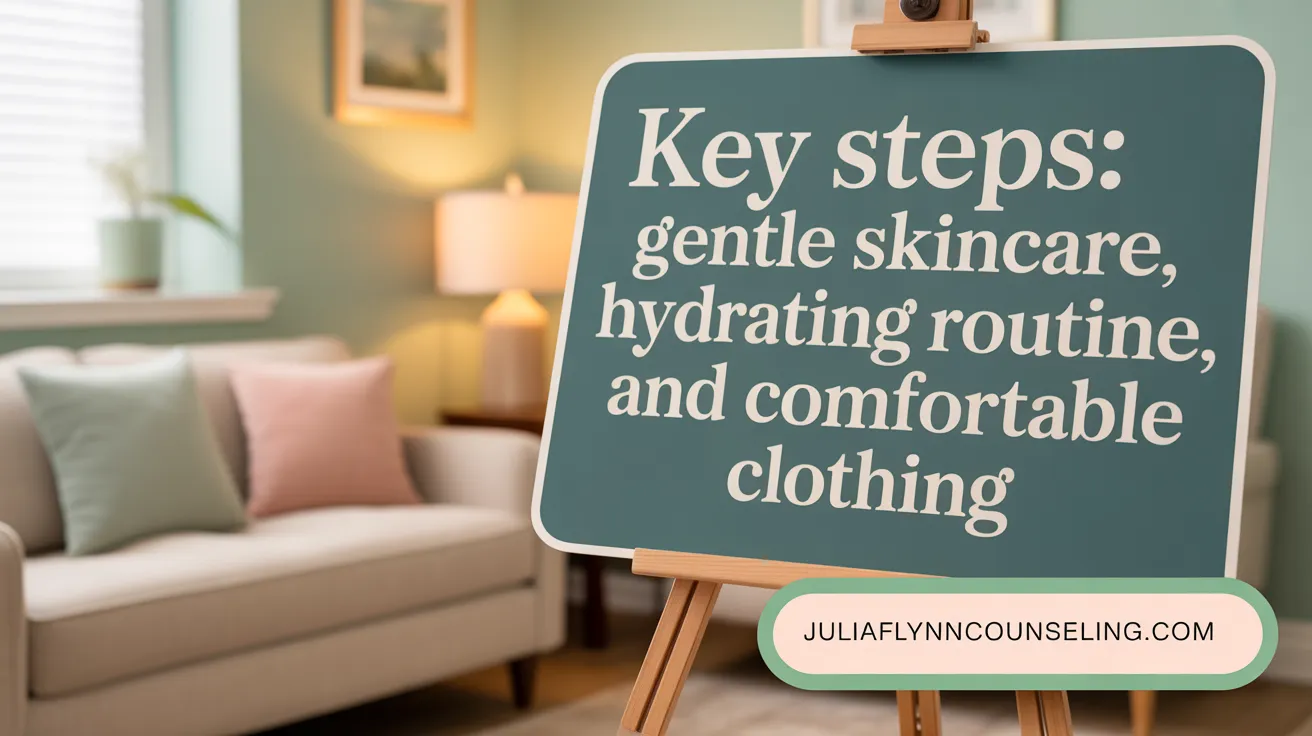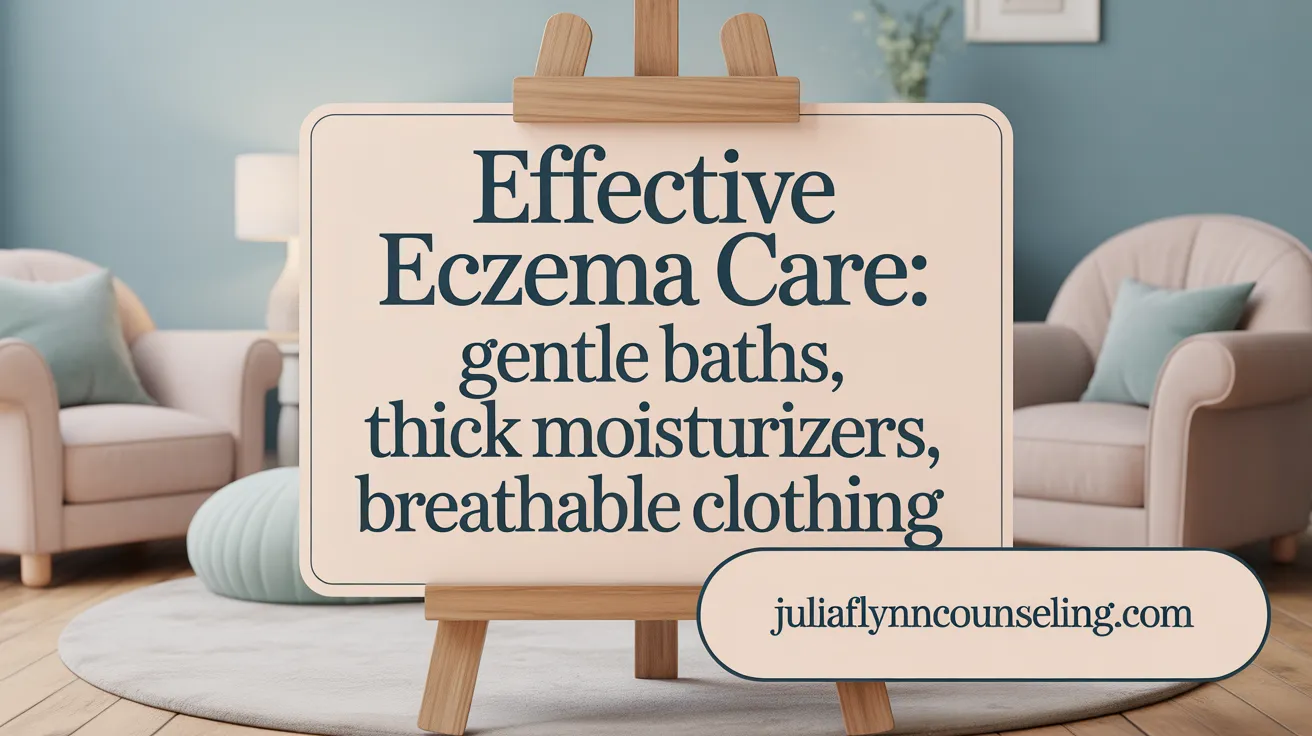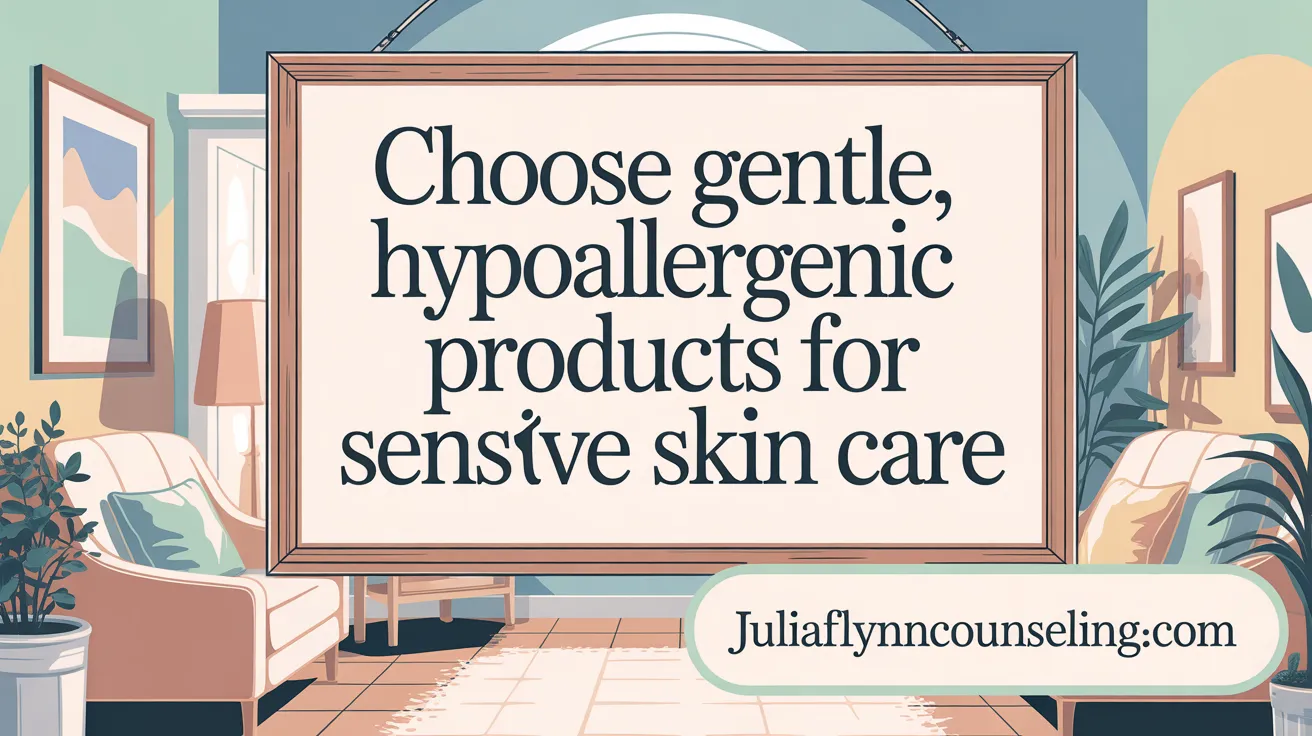Understanding the Importance of Routine in Managing Pediatric Eczema
Pediatric eczema is a prevalent chronic skin condition characterized by itchy, inflamed rashes that can disrupt a child's comfort and well-being. Managing eczema effectively requires a consistent, gentle daily skincare routine tailored to soothe sensitive, eczema-prone skin. This article explores key components of these routines, practical tips for bathing, moisturizing, and dressing, recommended products, and caregiver strategies to enhance treatment adherence and improve children's quality of life.
Core Components of a Daily Skincare Routine for Children with Pediatric Eczema

What are the key components of a daily skincare routine for children with pediatric eczema?
A well-structured daily skincare routine is vital for managing eczema symptoms in children. It begins with gentle bathing practices, where lukewarm water is used for about 5 to 10 minutes, accompanied by fragrance-free, hypoallergenic cleansers. Hot water and harsh soaps should be avoided, as they can aggravate dry, sensitive skin.
Immediately after bathing, it is crucial to pat the skin dry gently—never rub—and apply a thick, unscented moisturizer within three minutes to seal in moisture. Suitable products include creams or ointments containing ceramides, glycerin, or hyaluronic acid, which help repair the skin barrier and reduce dryness. Regular moisturizing at least twice daily, especially after baths, helps prevent cracks and infections.
In addition to skincare, clothing choices matter. Dressing children in loose, breathable fabrics such as 100% cotton, and laundering new or soiled clothes with gentle, fragrance-free detergents, reduces irritation. Managing environmental factors—like using hypoallergenic bedding, maintaining adequate humidity with cool-mist humidifiers, and eliminating irritants like smoke, fragrances, and dust mites—can significantly diminish flare-ups.
Creating routines that are consistent yet flexible helps children feel more secure and in control. Incorporating positive reinforcement, like praise or rewards, encourages adherence. Making skincare routines playful or game-like and involving children in choices—such as selecting their moisturizer or clothing—fosters independence. Visual cues like songs or visual schedules can signal routine steps and transitions.
Overall, combining gentle cleansing, rigorous moisturizing, appropriate clothing, environmental management, and motivational strategies supports effective eczema control and enhances the child's comfort and well-being.
Bathing, Moisturizing, and Dressing Tips for Eczema Care in Children

What are the best bathing, moisturizing, and dressing tips for children with eczema?
Managing eczema in young children involves specific routines to soothe and protect their delicate skin. The foundation of effective care starts with bathing. It is best to give children short baths, lasting about 5 to 10 minutes, in lukewarm water. Hot water can aggravate eczema, so always opt for a warm, comfortable temperature. Use gentle, fragrance-free cleansers that are hypoallergenic, specifically formulated for sensitive skin. Harsh soaps and bubble baths should be avoided, as they can strip moisture from the skin. Adding calming components such as colloidal oatmeal (like Aveeno Baby Eczema Therapy) can help reduce itching and soothe irritated skin.
Immediately after bathing, it’s important to gently pat the skin dry with a soft towel rather than rubbing. To preserve skin hydration, apply a thick, fragrance-free moisturizer or ointment, such as petroleum jelly, within three minutes of drying. This locks in moisture, supports the skin barrier, and reduces dryness and cracking.
Clothing choices also play a vital role in eczema management. Dress children in loose, breathable fabrics like 100% cotton, linen, or silk, which help minimize skin irritation. Avoid rough, itchy materials such as wool or synthetic fibers that can trigger flares. During environmental or seasonal triggers, protective clothing can prevent irritation caused by friction.
For severe or persistent cases of eczema, wet wrap therapy under guidance from a healthcare provider can be a helpful addition. This involves applying moisturizer or medication, then wrapping the skin with damp bandages or clothing to provide extra hydration and soothe inflammation.
Consistent moisturizing and strict avoidance of known irritants are essential for controlling eczema symptoms and preventing flare-ups. Regular routines, gentle cleansing, and appropriate clothing choices form the cornerstone of effective eczema care for children.
Recommended Skincare Products for Managing Pediatric Eczema

Which skin care products are recommended for children with pediatric eczema?
Managing eczema effectively often involves selecting gentle, specially formulated skincare products. For children with pediatric eczema, dermatologist-approved options are usually fragrance-free and hypoallergenic. These products are designed to reduce irritation and support the skin's natural barrier.
Moisturizers containing ceramides are highly recommended because ceramides help restore and maintain the skin barrier, which is often compromised in eczema. Colloidal oatmeal is another beneficial ingredient known for its soothing and anti-inflammatory properties.
Brands such as Mustela offer a range of products—including Stelatopia+ cream, cleansing oils, and intense eczema relief ointments—that are specifically made for eczema-prone skin. These products are clinically tested and approved for sensitive skin needs.
For bathing, gentle cleansers that do not strip oils, such as soap-free and hypoallergenic options, are ideal. The 'Soak and Seal' method—soaking in lukewarm water followed by promptly sealing in moisture with a suitable moisturizer—supports skin recovery.
In addition, organizations like the National Eczema Association (NEA) endorse certain products for safety and efficacy. These products, whether over-the-counter or prescription, should be used under medical guidance. When eczema is severe or persistent, health providers may recommend specific topical medications or biologic therapies.
In summary, choosing gentle, barrier-supportive skincare products with proven safe ingredients can significantly improve eczema management in children and promote healthier, happier skin.
Strategies to Soothe and Protect Eczema-Prone Skin in Children
What strategies can help soothe and care for eczema-prone skin in children?
Managing eczema in children involves establishing a calming skincare routine and creating a safe environment to prevent flare-ups. Regular bathing in lukewarm water for 5 to 10 minutes is recommended, using gentle, fragrance-free cleansers designed for sensitive skin. After bathing, it’s essential to pat the skin dry gently and apply a thick moisturizer immediately—products containing ceramides or petrolatum help restore the skin barrier and lock in moisture.
To minimize scratching and skin damage, keeping children’s nails short is crucial. During sleep, cotton gloves may be worn to prevent accidental scratching. Maintaining a comfortable environment is also important; controlling room temperature and humidity—using cool-mist humidifiers and avoiding overheated spaces—can help reduce irritation caused by sweating or dryness.
Clothing choices matter too. Dressing children in loose, breathable fabrics like cotton, linen, or silk minimizes friction and irritation. Washing new clothes with mild, hypoallergenic detergents before wear removes potential irritants.
Environmental triggers such as harsh soaps, scented products, and allergens like pet dander or pollen should be avoided. Regular cleaning of bedding with hypoallergenic covers and vacuuming with HEPA filters helps lower allergen exposure.
In cases of severe flare-ups, healthcare providers may recommend topical corticosteroids or non-steroid anti-inflammatory medications. Additional supportive measures like wet wrap therapy—wrapping the affected skin with moisture-rich dressings—and bleach baths, which help reduce bacteria and prevent skin infections, can provide relief.
Consistent application of these soothing and protective strategies can greatly improve children’s comfort, reduce flare frequency, and support healthy skin development.
Educating and Empowering Caregivers in Pediatric Eczema Management

What educational guidance should caregivers have for caring for children with pediatric eczema?
Caregivers play a crucial role in managing pediatric eczema effectively. They should learn the importance of establishing a consistent daily skincare routine that includes gentle cleansing, moisturizing, and the proper application of prescribed medications. Using lukewarm water for baths, applying thick, fragrance-free emollients like ceramide-rich creams immediately after bathing, and avoiding harsh soaps or irritants are fundamental.
Understanding how to identify and steer clear of common triggers such as dust mites, pet dander, pollen, and certain fabrics is essential. Caregivers must also recognize early signs of flare-ups, such as increased itching, redness, or dry patches that may indicate inflammation or infection.
Proper use of medications, including topical steroids or non-steroid alternatives, involves correct application techniques and awareness of potential side effects. Adherence to prescribed treatment plans can control symptoms and prevent worsening of the condition.
Supporting a child's independence is equally important. Educating children to participate in their skincare routine through choices and fun, game-like activities boosts their confidence and promotes consistent care.
Finally, caregivers should know when to seek medical advice—if eczema persists despite home management, worsens, or shows signs of infection. Regular communication with healthcare providers ensures tailored treatment adjustments and supports long-term skin health.
Enhancing Routine Adherence and Children's Independence in Skincare

Building Consistent Daily Routines
Establishing a predictable daily skincare routine is vital for managing pediatric eczema. Consistent activities like lukewarm baths with fragrance-free cleansers followed by immediate moisturizing help reduce dryness and flare-ups.
Using Positive Reinforcement Methods
Encouragement goes a long way. Praising children or rewarding them for sticking to their routines can boost motivation and make skincare a positive experience.
Making Routines Engaging
Transforming skincare into a game or fun activity can diminish resistance. Incorporate songs or create playful challenges to make bath time and moisturizing enjoyable.
Involving Children in Their Care
Giving children choice—such as selecting their moisturizer or clothing—fosters independence and confidence in managing their eczema.
Using Visual and Auditory Cues
Employ visual schedules or timers, and sing songs during routines to signal transitions. These cues help children understand each step and promote consistent practice.
Additional Tips for Success
Discussing challenges with healthcare providers can uncover barriers and suggest tailored strategies. Also, dressing children in breathable fabrics and maintaining allergen-free environments reduce potential flare-up triggers.
A well-structured, engaging routine supported by positive reinforcement not only helps manage eczema effectively but also empowers children to take control of their skin health.
Maintaining Consistency for Lasting Eczema Control
Daily skincare routines for children with pediatric eczema are essential foundations for minimizing flare-ups, soothing irritable skin, and supporting overall well-being. Establishing gentle bathing habits, applying moisturizers promptly, dressing children in suitable fabrics, and selecting appropriate skincare products provide the physical care required to manage eczema symptoms effectively. Equally important is caregiver education and empowering children through positive, engaging routines to foster independence and adherence. Collaborating closely with healthcare professionals ensures that treatment plans evolve with the child's needs. Consistency, patience, and informed care remain the cornerstones of successful pediatric eczema management, helping children lead comfortable and confident lives.
References
- Establishing an Eczema Care Routine for Your Preschooler
- Skin Care for Kids with Atopic Dermatitis
- Daily Skincare for Eczema
- How to Treat & Control Eczema Rashes in Children
- Atopic Dermatitis 101 for Parents
- How to Create a Skincare Routine for Kids with Eczema
- Kids Daily 1-2-3 Routine
- Skincare Routine for Facial Eczema: A Step-By-Step Guide
- Building a Daily Skin-Care Routine to Keep Eczema Under ...
- Skincare Essentials for Back-to-School Routines
